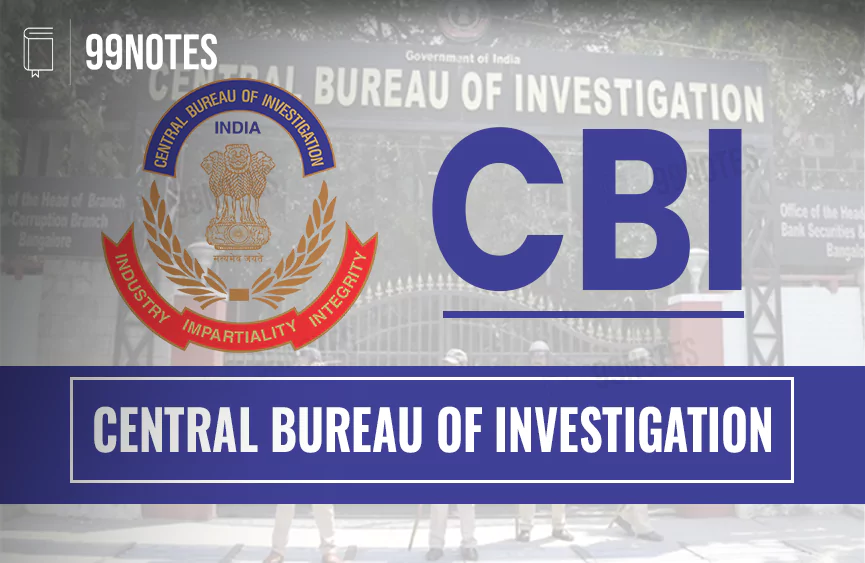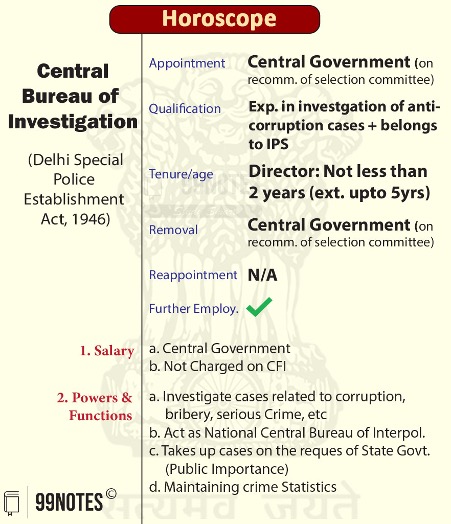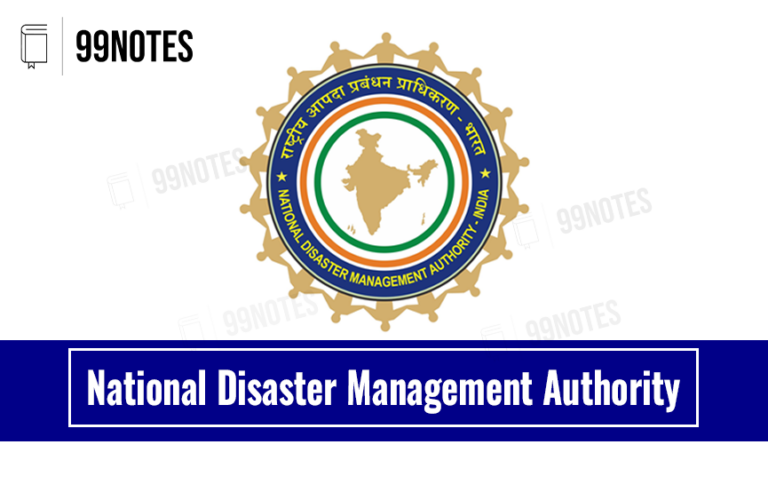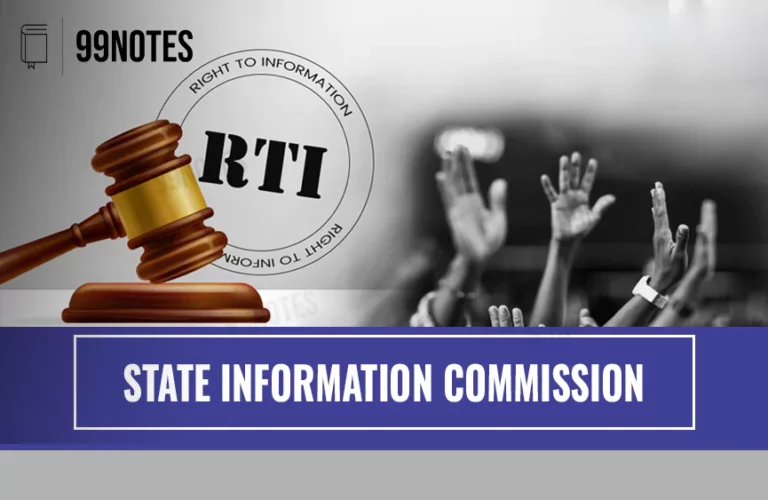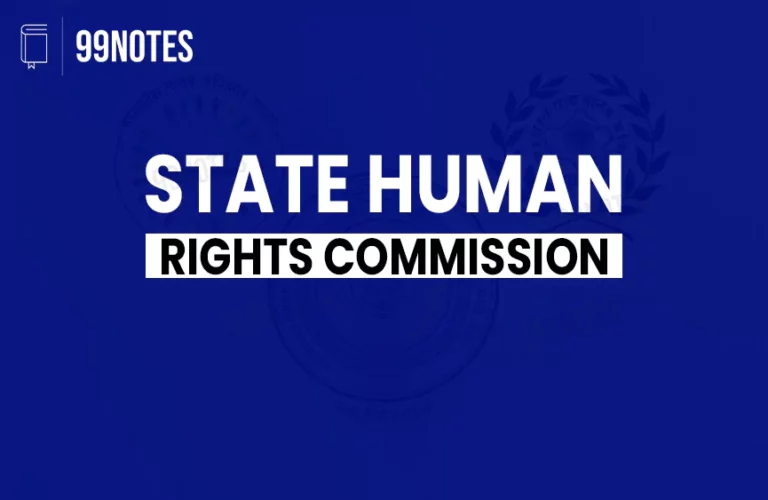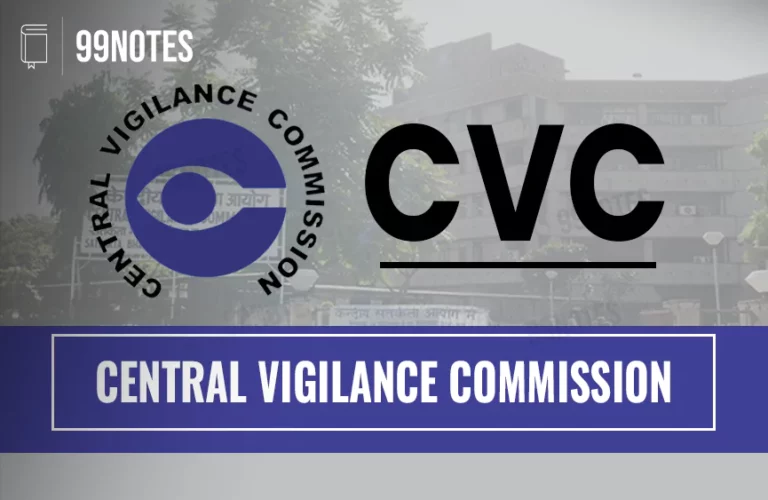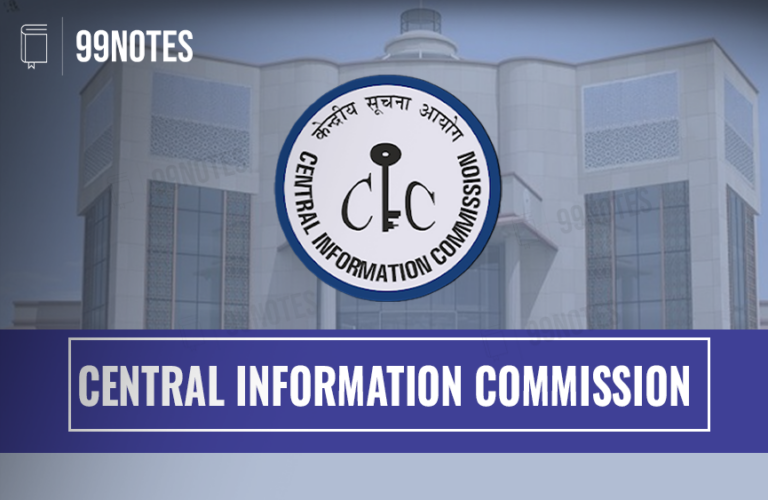Central Bureau of Investigation (CBI)- UPSC Notes
Central Bureau of Investigation (CBI)
The Central Bureau of Investigation is the premier investigating police agency in India. It function under the Department of Personnel and Training (DoPT), Ministry of Personnel, Pension & Public Grievances,
CBI is neither a constitutional body nor a statutory body; it derives its powers from the Delhi Special Police Establishment (DSPE) Act of 1946.
It is also the nodal police agency in India, which coordinates investigations on behalf of Interpol Member countries.
Evolution of Central Bureau of Investigation (CBI)
- The origin of the CBI lies in the Special Police Establishment (SPE), set up in 1941 by the Government of India in the wake of World War II.
- The SPE was set up to investigate cases of bribery and corruption in transactions with India’s War & Supply Department during World War II.
- After independence, the need for a central agency to investigate the cases of bribery and corruption by the central government was felt.
- The Delhi Special Police Establishment (DPSE) Act was, therefore, enacted in 1946. The act transferred the superintendence of the SPE to the Home Department and extended its functions to cover all departments of the Union government.
- Over time, demand was felt for a central police agency capable of investigating not just instances of bribery and corruption but also offences related to central fiscal laws, significant frauds involving government departments, public joint-stock companies, passport frauds, crimes on the high seas, offences on airlines, and severe crimes committed by organised gangs and professional criminals.
Consequently, the Government of India established the Central Bureau of Investigation through a resolution on April 1, 1963.
Legality of the CBI |
|
Motto, Mission and Vision of the Central Bureau of Investigation (CBI)
- Motto: The motto of the CBI is “Industry, Impartiality and Integrity”.
- Mission: To uphold the Constitution of India and the law of the land by conducting thorough investigations and successfully prosecuting offences; to offer leadership and direction to Police forces, serving as the central agency for promoting cooperation in law enforcement at both interstate and international levels.
- Vision:
-
- Fighting corruption in public life and curbing economic and violent crimes through thorough investigation and prosecution.
- Help fight cyber and high technology crime.
- Develop effective systems and procedures for successful investigation and prosecution of cases in across law courts.
- Ensure a healthy work environment that encourages team-building, accessible communication and mutual trust.
- Assist state police and law enforcement agencies in national and international cooperation, particularly in the context of enquiries and investigation of cases.
- Safeguard human rights and preserve the environment, arts, antiques, and the heritage of our civilisation.
- Play a lead role in the war against national and transnational organised crime.
- Strive for excellence and professionalism across all aspects of functioning, enabling the organisation to attain high levels of endeavour and achievement.
- Cultivate a scientific temper, humanism and the spirit of inquiry and reform.
Composition of the Central Bureau of Investigation
- The Director of the CBI, as the Inspector General of the Delhi Special Police Establishment, is the head of the administration of the organisation. The Director is aided by special directors and assistant directors.
- Moreover, the organisation has several joint directors, deputy inspector-generals, superintendents of police (SP), and all other usual ranks of police personnel, as well as forensic scientists and law officers.
- The Lokpal and Lokayuktas Act, 2013, provides for a Directorate of Prosecution headed by a director to conduct the prosecution of cases under the said act.
| Investigative Divisions in the CBI |
| CBI has the following 3 divisions for the investigation of crime:
1. Anti-Corruption Division: For investigation of cases under the Prevention of Corruption Act against the employees of the central government, Public sector undertakings, or corporations or bodies owned by the Central government. 2. Economic Offences Division: For investigation of major financial crimes and frauds, including crimes related to Fake Indian Currency Notes (FICN), Bank frauds and Cyber-crime. 3. Special Crimes Division: For investigation of serious, sensational and organised crime under IPC and other laws on the request of the state governments or on the order of the Supreme Court and High Court. Note: The central government notifies the law under which the CBI can investigate. |
Qualification, Appointment, Term and Removal of Central Bureau of Investigation
The CVC Act, 2003 and Lokpal and Lokayuktas Act, 2013 provides the terms of qualification, appointment, tenure and removal of the Director and other officials in the CBI.
Qualification of director of CBI:
The CVC Act, 2003 provided following criteria for the selection of the director of CBI:
- Seniority, experience and integrity in the in the investigation of anti-corruption cases;
- Belonging to Indian Police Service
Appointment of CBI Directors and other officers
After the amendments brought by Lokpal and Lokayuktas Act, 2013 in the DSPE Act, 1946, following procedure is being followed:
- Appointment of the CBI Director: The Union government will appoint the CBI Director on the recommendation of a selection panel consisting of the following members:
-
- Prime Minister (Chairperson);
- Leader of Opposition (LoP) in Lok Sabha or, in case LoP is not recognised, the leader of the single largest party in the House of People (Lok Sabha);
- Chief Justice of India (or Supreme Court Judge nominated by him/her).
- Appointment of Director of Prosecution: S/he is appointed by the Union government on the recommendation of the Central Vigilance Commission and functions under the overall supervision of the CBI Director.
- Appointment of Other Officers: The CVC (as Chairperson), VCs, along with the secretary in the Ministry of Home Affairs (MHA) and the Department of Personnel and Training (DoPT) make recommendations to the central government regarding the selection of the officers at the rank of SP and higher within the CBI excluding the Director of the CBI.
Tenure of CBI Director:
- As per the CVC Act, 2003, the term of the Director of the CBI continues for not less than 2 years from the date on which s/he assumes office.
- The Delhi Special Police Establishment (Amendment) Act 2021 provides for the extension of the tenure of the CBI director in the public interest on the recommendation of the selection committee.
- The tenure can be extended by one year at a time, subject to the limit of 5 years (including the duration of initial appointment.
- In conclusion, we can say that the minimum tenure of the CBI director is 2 years, which can be extended up to 5 years.
Note: The Director of the CBI cannot be transferred without the recommendation of the selection committee.
Removal of CBI
There is no clear provision in either the CVC Act, 2003 or the DSPE Act, 1946. However, in the Alok Verma case, the Central government removed the CBI Director on the recommendation of a selection committee comprised of the PM, the CJI (or an SC judge nominated by the CJI) and the LoP (or the leader of the single largest party in Lok Sabha).
Autonomy of the CBI(Vineet Narain Vs Union of India Case/Jain Hawala Case) |
| In this case, the Supreme Court laid down several measures to ensure the autonomy of the organisation, such as:
I. The CBI Director will have a tenure of a minimum of 2 years, irrespective of the age of his/her retirement. II. The CVC will supervise the CBI for its effective functioning. III. The CVC will be selected by a panel comprising the Prime Minister, the Home Minister, and the Leader of Opposition (LoP) in the Lok Sabha from a panel of outstanding civil servants. IV. The transfer of the CBI director should have the approval of the selection committee, which comprises the PM, the CJI and the LoP in the Lok Sabha. |
Powers and Functions of CBI
The Central Bureau of Investigation is mandated with the investigation of the following cases:
- Bribery and corruption cases involving central government employees; in matters of cases under the Prevention of Corruption Act, 1988, it works under the superintendence of the CVC.
- Violation of fiscal laws such as the Income Tax Act and laws related to customs and exercise.
- Cases in which the interest of the central government, any public sector undertaking, or any authority set up by the central government are involved.
- Breach of central laws with the enforcement of which are of specific concern to the government of India, for example:
-
- Foreign Exchange Regulation Act
- Passport Frauds
- Cases under the Official Secrets Act concerning central government
- Serious Cases of Cheating or fraud related to Railways, Post and telegraph departments, Crimes on the High Seas, Crimes on Airlines, etc.
- Other cases of a grave nature, when perpetrated by organised gangs or professional criminals, or cases with implications spanning several States and UTs, serious cases of spurious drugs, important cases of child abduction by professional inter-state gangs, etc. These cases are taken up by the CBI only at the request of or with the agreement of the State Governments/Union Territories Administrations concerned.
- The CBI can also take up cases of public interest at the request of state governments.
- Supreme Court and High Court can ask the CBI to take up cases of public interest anywhere in the country without requiring the consent of states.
- Prosecution of cases investigated by this Division.
- The CBI is the nodal police agency in India, which coordinates investigations on behalf of INTERPOL member countries.
Jurisdiction of the CBI
The primary jurisdiction of CBI is confined to Delhi and Union territories.
Extension of Jurisdiction: Section 5 of the DPSE Act empowers the central government to extend the jurisdiction of the CBI to any state; however, this can only be done with the consent of the concerned state government (section 6).
In cases where a criminal case is registered by state police, The CBI can take up the investigation in the following scenarios:
- If the state government makes a request and the central government agrees to it. (Generally, the central government consults with the CBI before giving consent.
- If the state government issues notification for consent under section 6 (authority of the state government to grant consent) and the central government issues notification under section 5 (authority of central government to extend the jurisdiction of CBI).
- The Supreme Court or High Court can order the CBI to take up an investigation of any case.
What is ‘General Consent’? |
Note: In most cases, states give general consent for investigation against central government employees only. |
Who exercises supervision with CBI?
- The superintendence of the CBI in the investigation of cases under the Prevention of Corruption Act, 1988, lies with the Central Vigilance Commission.
- In the rest of matters, the superintendence of the CBI rests with the Department of Personnel and Training (DoPT) under the Ministry of Personnel, Pension and Grievances.
Exemption from Right to Information
The investigation Reports of the CBI are exempted under section 8(h) of the RTI Act, 2005.
Section 8(h) exempts the disclosure of “information which would hinder the process of investigation or apprehension or prosecution of offenders”.
|
Section 6A: Approval of Central Government to conduct inquiry or investigation |
| Section 6A of the DSPE Act, 1946 requires the CBI to get approval of the union government to conduct any inquiry or investigation into offences purportedly committed under the Prevention of Corruption Act, where such allegation relates to:
i. The employee of central government at the level of joint secretary or above. ii. Such officers are appointed by the central government to serve in entities created under central acts, government companies, societies and local authorities owned by the Central government. Note: In 2014, the Supreme Court held the above provision illegal on the grounds of violating Article 14 of the Constitution. |
Issues with respect to the functioning of the Central Bureau of Investigation
Despite being the premier investigation of the country, the organisation is not without its flaws and has been the subject of contention for various issues. The agency has been accused of misuse against the state governments on the orders of its political masters. In 2013, the agency was described by the Supreme Court as a “caged parrot that speaks in its master’s voice”. Here, we will discuss major issues with respect to the functioning of the agency:
- Factors which affect the autonomy of the CBI
-
- The agency has to rely on the ministry for its staff since many of the investigators come from the Indian Police Service.
- It depends on the law ministry for lawyers.
- The agency is run by IPS officers on deputation, which allows the possibility of the central government manipulating the officers.
- Vacancy of posts: Inadequate human resources affect the disposal of cases and quality of investigation, which ultimately affects the overall effectiveness and efficiency of the agency.
As per the latest data, 1709 posts are vacant in the CBI against its sanctioned strength of 7295.
- Political interference: Since the superintendence of the CBI rests with the Department of Personnel and Training (except in cases of the Prevention of Corruption Act), it allows the possibility of political interference.
- Allegation of Misuse: The opposition parties have been making accusations regarding the misuse of agencies for witch-hunting and vendetta politics.
- Statutory Limitations: The existing act under which the CBI operates is outdated and has several limitations, such as ambiguity regarding jurisdiction and status of autonomy etc.
Reforms in the CBI
Several committees set up by the governments in the past, as well as parliamentary committees, have proposed reforms to improve the functioning of the agency. Here, we will discuss a few suggested reforms:
- Need for a new legal framework: Several government and parliamentary committees have recommended the enactment of a new law that defines the powers, functions, and status of the CBI. Requisite safeguards should be established to ensure autonomy, objectivity and impartiality in its functioning. The new law should be made in consensus with all stakeholders, including the state governments.
- Protection from political interference: While the Lokpal and Lokayuktas Act shields the appointment process of the CBI Director from political interference, the administration of the CBI is still vulnerable to political interference. A provision for criminal culpability for the government can be made to prevent this.
- Dedicated cadre for CBI: Having its own cadre of officers will not only enhance operational and administrative efficiency but will also shield the agency from political interference.
- Greater Autonomy: The CBI can be granted greater autonomy along the lines of constitutional bodies like CAG.
- Bifurcation of functions: The CBI can be bifurcated into an anti-corruption agency and a national crime bureau. While the former will be entrusted with its existing anti-corruption function. The latter should be tasked with criminal offences of national and international ramifications.
- End exemptions under RTI in some cases: All information related to cases that were withdrawn, closed or dismissed by the Court should be made open for disclosure under RTI.
- Regarding post-retirement benefits, The Director of the CBI should be made ineligible for further employment under the central or state government to prevent cases of quid pro quo.
The Central Bureau of Investigation (CBI) plays a vital role in upholding the rule of law and ensuring justice for the people of India. As the nation’s premier investigative agency, boasting one of the highest conviction rates (74.59% in 2022) among both central and state agencies, it is imperative for the CBI to operate free from political interference to maintain public trust. The agency’s noteworthy successes in resolving high-profile cases underscore its significance as the foremost investigative authority.
Consequently, it becomes imperative for the government to pay heed to the recommendations of various committees and adhere to the rulings of the Supreme Court and High Courts, ensuring the CBI’s continued effectiveness and integrity in serving the nation.

